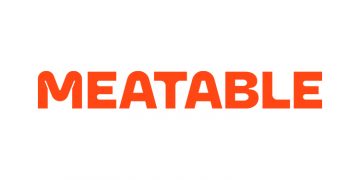Global hyper-fermentation company Cauldron has closed a $9.5M AUD ($6.25M USD) Series A, led by Horizons Ventures, with SOSV and In-Q-Tel (IQT) joining existing investor Main Sequence in the round.
Cauldron’s continuous fermentation or “hyper-fermentation” technology deploys a novel bioreactor design and proprietary growth medium formulation to improve the economics of large scale fermentation production by five times compared to current industry standard. This allows more sustainable bio-based products to reach price parity and achieve mainstream adoption.
The UN estimates that the global population will reach 10 billion people by 2050, and we will need to increase food production by 70% to meet this demand.
Precision fermentation is a key factor in being able to increase food production without needing to expand agricultural land, solving one of the most important barriers to food sustainability and security.
“Precision fermentation is an amazing technology, because it enables bio based production of a wide range of products with diverse applications,” said Chis Liu of Horizons Ventures. “To date, the technology has been hamstrung by its costs compared to conventional production methods, but Cauldron’s unique solution significantly improves the competitiveness of precision fermentation both in capital and operating expenditure.”
The key to Cauldron’s technology is the ability to run continuous hyper-fermentation production compared to the short-term “batch” production widely in use today. Cauldron has successfully run a 10,000 liter production system continuously for more than eight months without contamination or “genetic drift” of the microbes—two of the biggest challenges in running long-term fermentation. Because Cauldron’s system operates continuously, it can outproduce traditional batch systems five times larger with its smaller, far less costly bio-reactors.
“Cauldron has proven its precision fermentation at an industrially relevant scale, unlocking a significant decrease—between 30 and 50% —in the cost of goods for our customers vs. traditional batch fermentation,” said Cauldron CEO and co-founder, Michele Stansfield. “From biofuels and agriculture to cosmetics and chemicals, the opportunities are immense, and with the support of our incredible investors, we’re poised to capitalise on them.”
Stansfield helped develop Cauldron’s technology as the general manager at Agritechnology, which spent 35 years researching and developing continuous fermentation systems for the agricultural market in Australia. Cauldron acquired Agritechnology’s precision fermentation IP through its seed round in 2023 in order to commercialise and scale the technology globally.
“Michele and Cauldron’s history of succeeding at long-run fermentation is unparalleled. The benefits of the technology—the ability to continuously produce, up to 50% lower net unit costs, and 20% more output with 45% less capex—dismantle a major obstacle for the industry and position the company as a critical manufacturing partner for companies building a more sustainable future,” said Po Bronson, SOSV GP & IndieBio Managing Director.
This raise brings Cauldron’s total funding to $20m and enables the company to support faster than expected customer growth, build robust proof cases around the application of its hyperfermentation technology, and finalise partners and plans for a 500,000 liter facility. In the meantime, Cauldron is already working with global commercial partners across sectors at its existing 25,000-liter facility in Orange, New South Wales, Australia. Cauldron’s long term plan is to build plants around the world to deliver hyper-fermentation production for partners in biobased products.
That promise is part of what is attracting investors. “Our investments include technologies needed to safeguard the interests of the US and its Allies,” said Olivia Jones, Director at IQT. “Food insecurity and competition among countries to control resources is a real risk. The technology Cauldron has created in enabling alternative ways of producing food, proteins, and materials on an industrial scale will be game changing.”




















